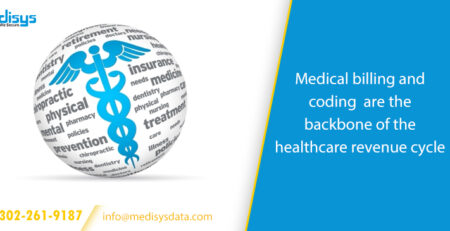Physician Assistants (PAs) and Nurse Practitioners (NPs) also referred to as non-physician practitioners (NPPs). To improve patient care practices are increasingly hiring nurse practitioners (NPs) and physician assistants (PAs) to increase reimbursement. If you are among them, you will want to make sure that your billing should be error free for them to increase reimbursement for your practice.
To run cost-effective and efficient medical practice you need to understand medical billing and coding for nurse practitioners. Regulations are varied by insurance companies and state by state, so both the nurse practitioners and physician must stay up to date with practice guidelines and current updates.
Types of reimbursement from Medicare for these NPPs (non-physician providers)
National Provider Identifier (NPI)
It’s important that all mid-level providers should have their own National Provider Identifier (NPI) and be credentialed with each payer to bill under their NPI number, based on payer rules and regulations. There is positive and negative point of the payments to NPPs; positive point is that NPPs have greater flexibility, including seeing new patients and existing patients with new problems. Negative point is reduction in receivable amount.
Bill “incident to”
Under Medicare, when billing “incident to,” you will receive 100% of Medicare rates. New patients should be seen by the physician to set up the Plan of Care and this would be billed under the rendering physician. One side note: The physician who initiates the plan of care does not need to be the same allergist who supervises the NP – it can be another allergist in the group.
Most commercial payers follow Medicare’s “incident to” rules and regulations. But plans are vary, so you need to check your contracts to review the rules for “incident to” billing. Some commercial plans have less restrictive rules regarding “incident to” billing – but make sure you get them in writing.
How do NPPs work in your practice? Do they see only follow up patients, and is there always patient in the clinic with them? If so, “incident to” billing might work. However, if your NPPs cover remote locations by themselves, or regularly see new patients, billing “incident to” will not work. Check your state’s licensing and rules and regulations to identify other requirements.
If adjustments are made to the plan of care, then the physicians should see the patient face to face in some cases, in order to adjust the original plan of care, otherwise, the visit may not qualify for “Incident to” billing.
The need of physician assistant and nurse practitioners is increased due to patient care, physicians’ shortages and healthcare spending. Correct understanding and updated knowledge of billing is required for individual payer.
According to the Bureau of Labor Statistics, “Employment of physician assistants is projected to grow 37 percent till 2026, much faster than the average for all occupations.”
Is your practice using NPs or Pas service? Are you looking for guidance in billing? Let us know your requirement. Connect with our medical billing manager today at info@medisysdata.com.
About Medisys
We are a group of medical billing experts who offer comprehensive billing and coding services to doctors, physicians & hospitals. We provide end to end billing and coding solutions. Medisys Data Solutions RCM solutions ensures that the providers recover every $ they are entitled to. Our vision for the providers is “You Cure. We $ecure.”












